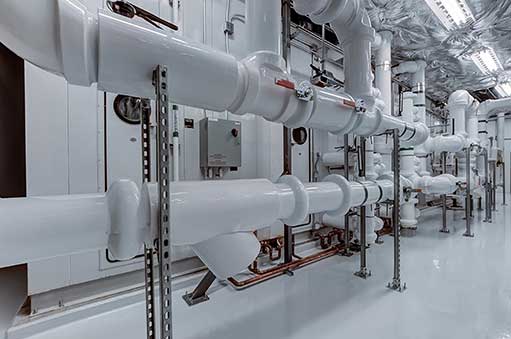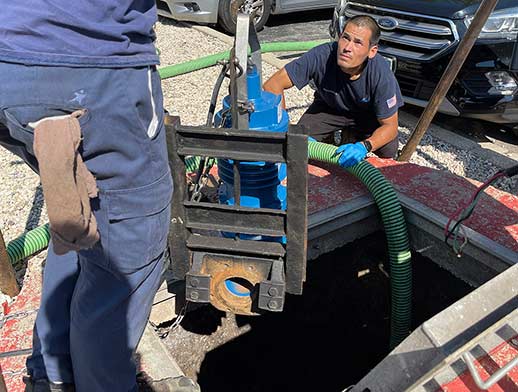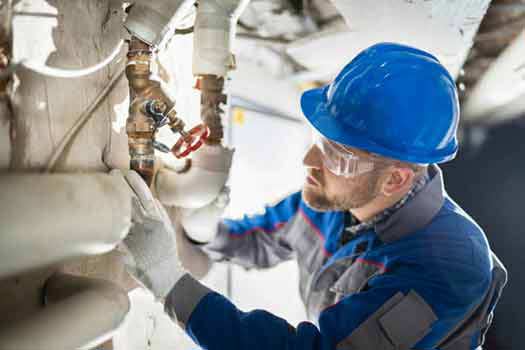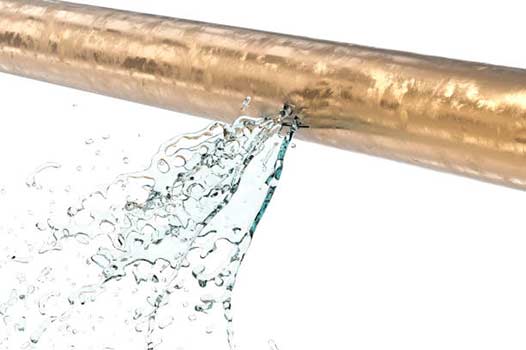
If you want to take care of commercial plumbing maintenance for hospitals and healthcare facilities in Chicago, you need the right know-how! So, let’s explore the unique challenges and strategies involved in ensuring the smooth operation of such facilities. From preventive maintenance to emergency preparedness, we’ll cover all aspects of maintenance required to safeguard patient care and facility operations!
Understanding the unique plumbing needs of hospitals
Understanding hospitals’ unique plumbing needs is necessary to ensure efficient operations and patient safety.
Hospitals have a high demand for water usage due to numerous patient care activities, such as surgeries, cleaning, and sanitation. In addition, specialized equipment like medical gas systems and sterilizers require precise plumbing connections to function properly. So, to take care of your plumbing in hospitals, you must recognize these specific needs and address them accordingly.
By understanding the intricacies of hospital systems, facility managers can develop tailored maintenance plans to prevent costly emergencies and ensure uninterrupted healthcare services!
Importance of preventive maintenance
When tackling commercial plumbing maintenance for hospitals, you need to understand the need for preventive maintenance. After all, hospitals must avoid costly emergencies and downtime!
By conducting regular inspections and addressing minor issues promptly, you can prevent larger problems from arising. This proactive approach both saves money and ensures uninterrupted patient care.
Of course, implementing a preventive maintenance program tailored to your hospital’s specific needs can more effectively take care of things. Likewise, it enhances the longevity of your systems and equipment, reducing the need for repairs or replacements.
Common plumbing issues in healthcare facilities
Even common commercial plumbing problems in hospitals can seriously disrupt operations and compromise patient care.
Issues like clogged drains, leaky faucets, and malfunctioning medical equipment connections are prevalent. These problems inconvenience staff and pose health risks to patients if left unaddressed.
After all, clogged drains can lead to water backups and potential contamination, while leaky faucets waste water and increase costs. Malfunctioning medical equipment connections can also compromise patient treatments and safety!
As such, managers must address these issues promptly to maintain a safe and hygienic environment.
Compliance with regulations and standards
Compliance with regulations and standards is extremely important in ensuring the safety and well-being of patients.
Both local and federal regulations govern plumbing systems in these settings, with specific codes and standards unique to Chicago. Facility managers must, therefore, stay informed and ensure their systems meet these requirements to avoid legal consequences and maintain accreditation.
Thankfully, adhering to regulations protects patients and promotes public trust in a hospital’s ability to provide quality care!
Developing a comprehensive plumbing maintenance plan
Developing a comprehensive plumbing maintenance plan is necessary for healthcare facilities in Chicago.
This plan should include regular inspections, scheduled tasks, and emergency response protocols. Facility managers must assess the specific needs of their facility, considering factors such as the age of the infrastructure, usage patterns, and regulatory requirements.
By identifying potential issues proactively and addressing them before they escalate, healthcare facilities can prevent costly emergencies and minimize disruptions to patient care. Similarly, incorporating technology such as predictive sensors and remote monitoring systems can enhance the efficiency of such planning.
Prioritizing water conservation
Prioritizing water conservation is a great idea for healthcare facilities in Chicago to minimize their environmental impact and reduce operating costs.
Facilities can significantly decrease water usage without compromising patient care by implementing water-saving fixtures and technologies, such as low-flow faucets and toilets. In addition, staff education initiatives can raise awareness about the importance of water conservation and encourage behavior changes to reduce waste.
Incorporating water-efficient practices into daily operations, such as monitoring for leaks, can further contribute to conservation efforts. Lastly, partnering with eco-friendly plumbing service providers can offer expertise in implementing sustainable solutions tailored to your facility’s needs.
Utilizing technology for efficient maintenance
Utilizing technology for efficient maintenance is a great approach for healthcare facilities in Chicago.
With the advent of innovative solutions like predictive maintenance sensors and remote monitoring systems, facility managers can detect potential issues before they escalate into costly emergencies.
These technologies enable real-time monitoring of systems, providing insights into performance metrics and identifying anomalies that require attention. By leveraging data-driven insights, facilities can optimize maintenance schedules and allocate resources more effectively!
Notably, smart plumbing solutions also offer remote access capabilities, allowing maintenance teams to troubleshoot and address issues promptly, even from off-site locations.
Training and education for staff
Training and education for staff play a big role in maintaining the plumbing systems of healthcare facilities in Chicago.
By providing comprehensive training sessions, managers can empower staff to recognize early signs of issues and perform basic maintenance tasks. These sessions can cover leak detection, proper water usage practices, and emergency response protocols.
Furthermore, ongoing education ensures that staff stay updated on the latest plumbing technologies and regulations, enabling them to adapt to changing needs and requirements.
Partnering with professional services
Partnering with professional plumbing services is more than helpful for hospitals to ensure the reliability and efficiency of their plumbing.
Experienced plumbing services specialize in commercial settings, understanding the unique needs and regulations governing healthcare facilities. By entrusting maintenance and repairs to these professionals, facility managers can rest assured that issues will be addressed promptly and effectively.
Likewise, having moving professionals you can rely on is useful. Golans Moving and Storage Chicago, a well-known moving company, can offer quick and efficient packing and moving services to prevent damage to your equipment in case of major plumbing issues. In addition, they can even hold your equipment in storage until your plumbing problem is resolved.
Emergency preparedness and response
Emergency preparedness and response are important aspects of maintaining the functionality and safety of plumbing systems.
Facility managers must have robust emergency plans outlining procedures for addressing plumbing crises promptly and efficiently. That includes establishing communication protocols, identifying emergency contacts, and training staff on emergency response procedures.
Likewise, hiring an emergency plumber is necessary to ensure expert help is readily available in emergencies such as leaks, burst pipes, or sewer backups. These professionals have the expertise and equipment to assess and resolve issues quickly, minimizing the impact on patient care.
Additionally, facility managers should regularly review and update their emergency plans to address any changes in infrastructure or regulations!
Pursuing commercial plumbing maintenance for hospitals
Prioritizing commercial plumbing maintenance for hospitals and healthcare facilities in Chicago is necessary for ensuring uninterrupted patient care and regulatory compliance. Hospitals can mitigate risks and optimize efficiency by implementing preventive maintenance plans, leveraging technology, and partnering with professional service providers. Moreover, with a proactive approach to maintenance, hospitals can uphold the highest standards of safety and reliability, ultimately enhancing the well-being of patients and staff alike!


